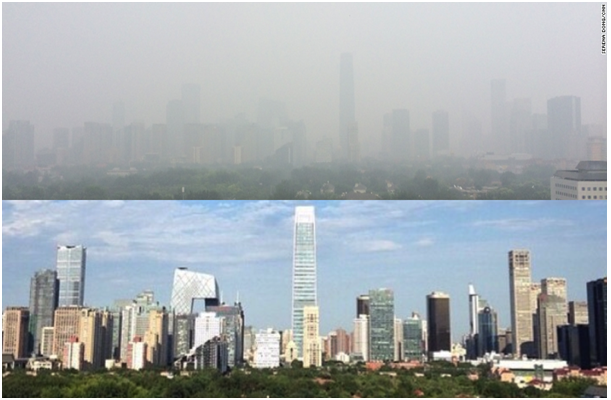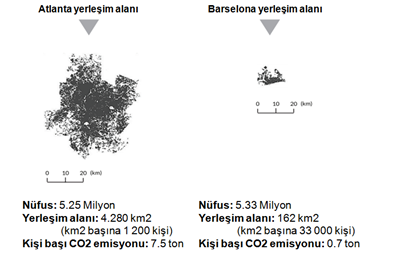Turkey doesn’t get the issue of climate change
Are you aware that Turkey is an extremely inward-looking country? We do not follow what goes on in the world at all. We don’t pay much heed to the world. We don’t know the debates going around. But somehow, we think that the world is always interested in our country. It feels as if the entire world is eyeballing us. This has nothing to do with the world. This is about us. I’ll explain it some day when I get the chance, but let me just note that’s just not normal.
From this perspective, Turkey doesn’t get the issue of climate change just as many other issues that weigh heavily on the global agenda. When we fail to grasp the gist of the issue, we obviously fail to engage fully in the global debate. Why? We don’t know. I have the impression that this year’s G20 leadership has been most informative on this issue. For instance, we perceive the debates around climate change as a romanticism of birds and bees and trees. That’s our main folly. This was the case in the 20th century, but it no longer is. It is merely an indicator of our handicap in following world affairs. Surprise, surprise: The issue of climate change has now become the quasi-twin of growth based on technological renovation/innovation in the industry. Curtailing the risk of climate change is now a problem of growth and employment. Now that this is the case, it is easier to bring together developed and developing countries on the same front. How and why? Let me explain.
Please check out the pictures here first. Both pictures are from Beijing. The two pictures below show Beijing before and after the APEC summit. I was there during the summit. The sky was blue, the sun was shining bright. Everyone said, “Enjoy it while it lasts…” Beijing normally appears like the first picture, almost like an image from the movie Blade Runner. What is the difference between the two pictures? When you halt production in the factories around the city, allow full course of action to public employees and resort to traffic control via an odd-even license plate number system, Beijing becomes crystal clear just like that. So what is the idea? Our problem on climate change is man-made. Period.

What happens if we don’t contain the climate change risk? We already know that part of Turkey will be desertified, agricultural basins will be severely constrained and part of the land will be submerged under water. What matters is this: This will not only happen to us, this will happen to all of us. Then we have to take measures. If the way our lives are organized threatens the species, we have to alter the way that life is organized on earth. We have to reconsider the basic infrastructure. But how?
For instance, we have to start living in cities where population densities are higher and compacter and increase public transportation. See the comparison below. 5.25mn people live in the city of Atlanta in the US in 4280 square kilometres. 5.33mn people live in Barcelona in 162 square kilometres. The carbon emission per capita in Atlanta is 7.5 tons per year, whereas it is 0.7 tons in Barcelona. There you go. What to do? We should contemplate whether a city extending skyward is better than one extending in all directions like an oil stain, whether skyscrapers are in fact greener or whether they exert pressure on other resources. If a city extending skyward is more environmentally friendly, let’s start contemplating how that city is to be designed.

Will that do? No it won’t. We need to take into account the energy efficiency of buildings in the design of new cities. It would be helpful to start transforming the industry of construction materials with the technological base afforded by the progress in materials science or nanotechnology. For that, the laws and the regulations that set construction standards need to be revised. What is the outcome? As you take measures and change the construction standards to ward off the risk of climate change and to constrain energy requirements, you pave the way for a nanotechnology-based transformation in your industry. What will happen? Turkish industry will switch gears. We will have a new story.
Will that do? No it won’t. Studies by the OECD and the European Commission indicate that the use of biotechnology in industrial processes reduces both energy use and carbon emissions. For instance, the biotechnology application that has replaced chemical synthesis in the generation of vitamin B2 cuts the production process from eight to two phases and curbs CO2 emissions by 30%. So? If we bring the biotechnology-based technological platform to Turkey, our industry will upgrade to hi-tech on the one hand, and our carbon emissions will drop on the other. The steps to be taken to curb climate change can lead the way for growth based on innovation and R&D in developing countries.
How will that happen? We all know by now that Turkey needs a new story today. We have “upgraded” from the Fragile 5 to the Fragile 3 because we have yet to come up with a story. To this end, we first need to refocus transformation programs. Turkey has been searching for that focus for a while now. Qualitative transformation does not come about for the sake of qualitative transformation. It comes about for a more tangible target. The target should be boosting the hi-tech industrial exports of Turkey. Within this framework, the goal should be an industrial transformation that transforms multiple sectors at the same time, allows productivity increases and depends on technology platforms like biotechnology, nanotechnology and information technologies. The subsidies should be more project-based and different from the conventional ones.
A transformation offensive that rests on these new technology platforms will also curb the climate change risks. Innovation-based growth in developing countries along with new technology platforms will curtail climate change risks and improve productivity across all sectors. Turkey had adopted a myopic perspective when wind and solar energy came onto the agenda, saying, “We will see, once the technology develops.” Now is the time to be more active with transformation programs.
I suggest those who would like to follow the current agenda read the Better Growth, Better Climate by the New Climate Economy.




